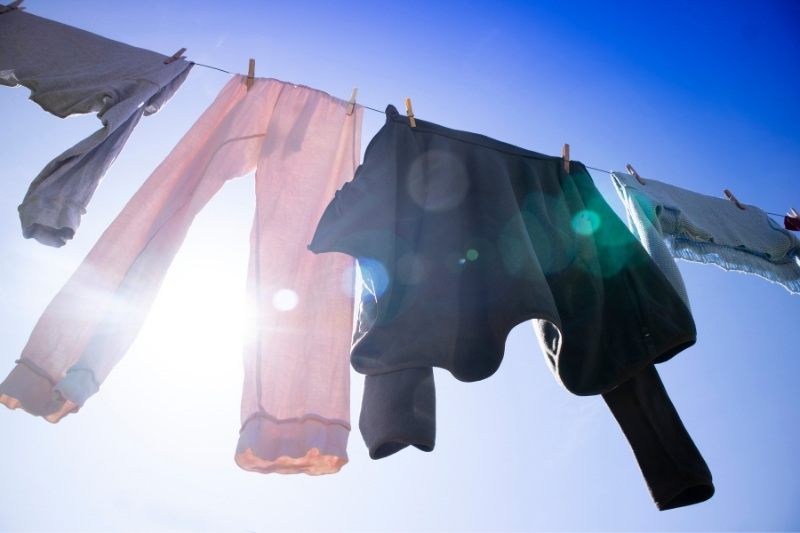Doing laundry in summer is a more pleasant experience than doing it in winter, for the simple fact that you can dry your clothes outdoors.
You economise on the costs of using a tumble dryer, you avoid the humidity that comes from drying clothes indoors, and nothing beats the fresh smell of clothes that have dried in a summer breeze.
Knowing this, many of us will put a load on in the morning to get our clothes on the line in the afternoon, but this may not be the best time to do laundry in the summer.
In this article, we explain what time of day to do your laundry during summer.
If You Have an Economy 7 or 10 Electricity Tariff
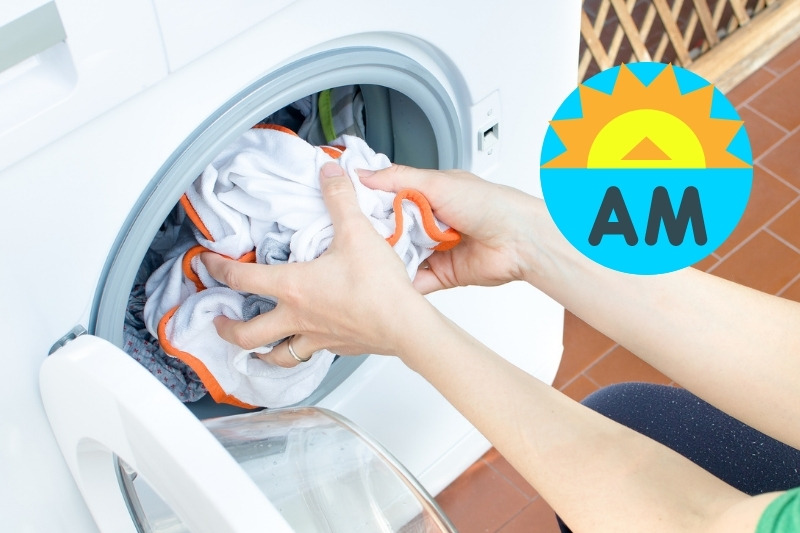
If you are on an Economy 7 or Economy 10 tariff, you can save money by washing outside peak hours. These tariffs give you seven or ten hours respectively of lower-priced electricity outside of peak hours.
The exact times of peak and off-peak hours vary depending on the electricity supplier and area of the country.
Economy 7 is usually a continuous period of lower-priced electricity from roughly 1 AM to 8 AM.
Economy 10 is usually split into two or three periods—a period of about five to seven hours overnight plus one or two shorter in the afternoon and/or evening. For some examples, energy provider SSE has a chart of their Economy 10 times in different regions.
If you are on an Economy 7 or 10 tariff, the best time to wash your clothes in the summer is probably before 8 AM. If your washing machine has a timer, you could time it to start around 5 or 6 AM so that it will be finished by 8 AM. Then you can hang the clothes out to dry when you get up.
If your washing machine doesn’t have a timer, you could put it on manually at around 5 AM if you’re an early riser. If you’re more of a night owl, you could put it on before you go to bed and hang the clothes out first thing the next morning.
You can normally leave clothes in the washing machine for about 8 hours before odours start to develop, so you could wash clothes at night and then hang them out the next morning.
It’s important to note that you will only save money by washing clothes outside of peak hours if you are on a special electricity tariff such as Economy 7 or Economy 10.
Most tariffs charge a fixed price for a unit of electricity, so running your washing machine will cost the same no matter what time of day or night you use it.
The only way to be sure of peak times is to check with your energy provider. They should be able to provide this information so you know if you can save money by laundering your clothes at a specific time.
If You Have a Standard Electricity Tariff
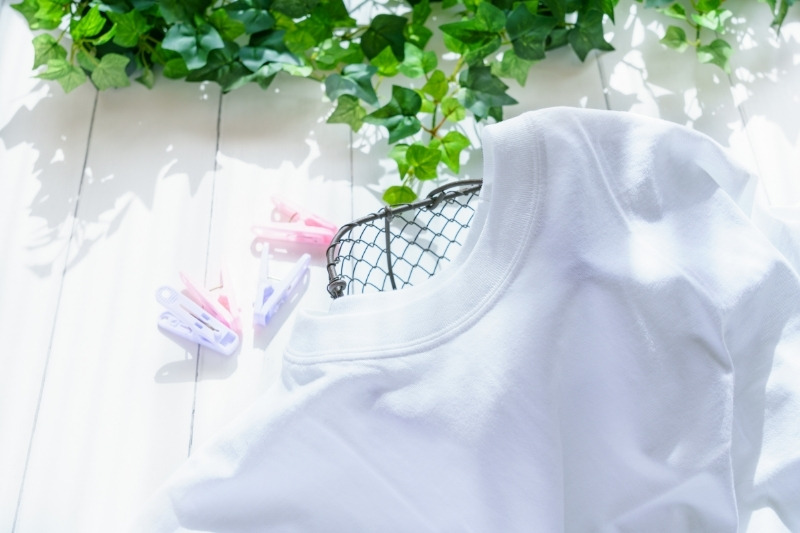
On standard electricity tariffs, the price of electricity is the same no matter what time of day it is. Most people on the UK are on standard tariffs. Unless you know that you’re on Economy 7 or Economy 10, you probably have this kind of electricity tariff.
In this case, the best time to do laundry in the summer is whenever it is most convenient for you and your schedule.
For most people, it will be best to wash clothes in the morning so they have plenty of time to dry outside during the day.
It can be hard to fit this around work though, unless your washing machine has a delay timer which allows you to program it to start early in the morning before you wake up.
Plan When You Will Dry Your Clothes
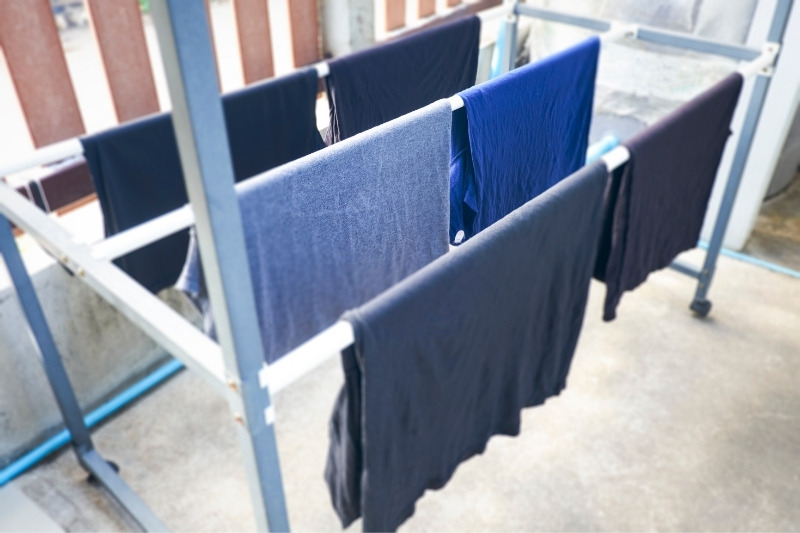
The advantage of doing laundry in summer is that you have more time to hang your clothes out to dry.
The weather is warmer, there are more sunny days and more hours of sun. This means that you avoid the energy costs associated with using a tumble dryer.
However, you do need to be careful when you hang your clothes out to dry. Hanging them in full sun may seem like a good idea but colourful and dark clothes can fade in the sunlight.
If you are going to hang your colours and darks outside, make sure you can place the washing line or drying rack in a shady area.
Even though they won’t get the full sun, the warmer temperatures and summer breeze will still allow them to dry relatively quickly.
How to Make Your Wash Cycles Even More Economical
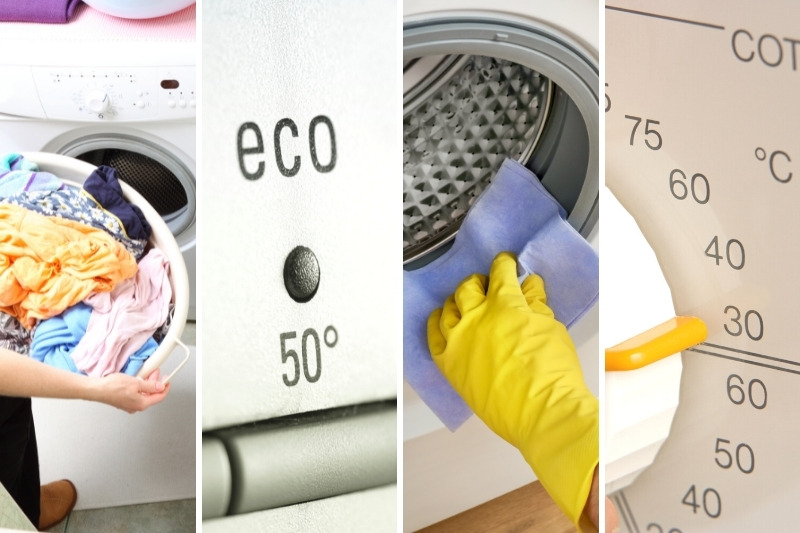
If you’re looking for extra ways to save on energy and therefore, energy bills, when washing your clothes, try these tips:
- Only run your machine on a full load as you will use your machine less.
- Choose an energy-efficient appliance as they are designed to save on energy and therefore reduce your energy bills.
- Wash similar clothes together, in terms of size and dirt, as this helps avoid having to wash items again if they don’t get fully clean the first time.
- Perform regular maintenance on your machine as it will be more efficient if the lint filter is clear.
- Washing on lower temperatures such as 30°C or even 20°C can save you some money on your electricity bills. This is not appropriate for all loads. If you need to kill bacteria, 60°C is the recommended temperature.

In The Wash is your guide to the best laundry and cleaning products, tips and tricks. Our mission is to solve the UK’s cleaning and laundry dilemmas!
